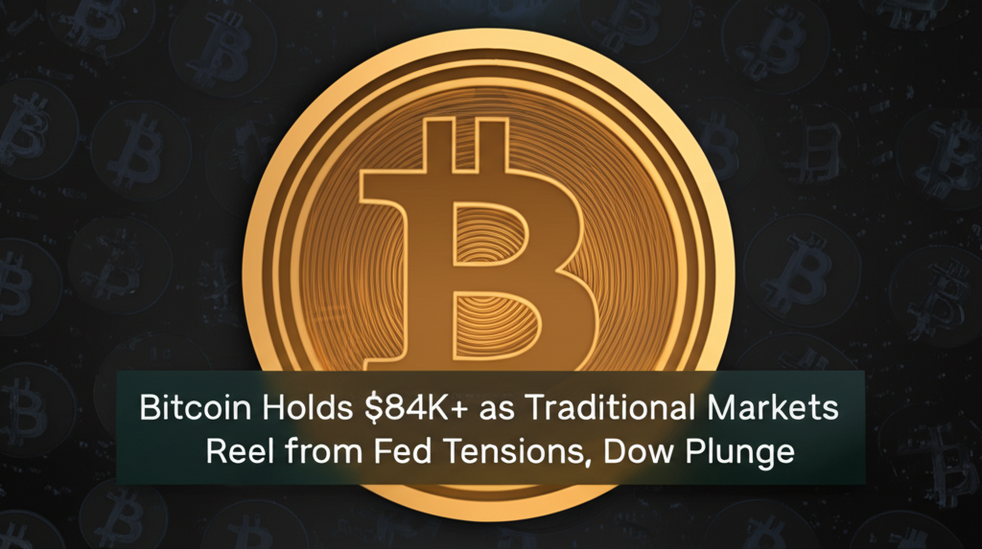Bitcoin Holds $84K+ as Traditional Markets Reel from Fed Tensions, Dow Plunge

Bitcoin demonstrated relative stability on Thursday, maintaining levels above $84,000 even as traditional U.S. equity markets experienced significant volatility.
The digital asset held its ground while the Dow Jones Industrial Average plunged 1.2%, shedding approximately 500 points. This sharp decline was primarily driven by a staggering 23% drop in UnitedHealth shares after the insurer drastically lowered its annual profit outlook.
Broader market sentiment was mixed, with the S&P 500 managing a modest 0.2% gain, supported by strength in specific sectors. However, the tech-focused Nasdaq Composite dipped slightly by 0.13%, partly due to Nvidia facing a second day of losses following expanded U.S. restrictions on chip exports to China.
Investor attention remained captivated by Federal Reserve Chair Jerome Powell, who recently cautioned that increased tariffs could hinder economic growth and fuel inflation. Powell indicated the central bank would await clearer trade policy developments before considering interest rate adjustments, tempering hopes for near-term cuts.
This stance drew sharp criticism from President Trump, who intensified his calls for Powell’s removal and reportedly discussed potential replacements, including former Fed governor Kevin Warsh. Such political tensions contribute to the macroeconomic uncertainty affecting crypto and traditional assets alike.
Amidst this backdrop, AI chip demand fueled a positive note elsewhere, with TSMC reporting a 60% jump in Q1 net profit, exceeding forecasts. Market participants also awaited earnings from Netflix.
In fixed income, 10-year Treasury yields climbed to 4.325%, and the U.S. dollar saw a slight increase. While Bitcoin briefly surpassed $85,000, it settled around the $84,600 mark at the time of reporting, showcasing resilience compared to the Dow’s sharp fall. Bitcoin holds steady despite these pressures.
Stock and bond markets are scheduled to be closed on Friday in observance of Good Friday.
